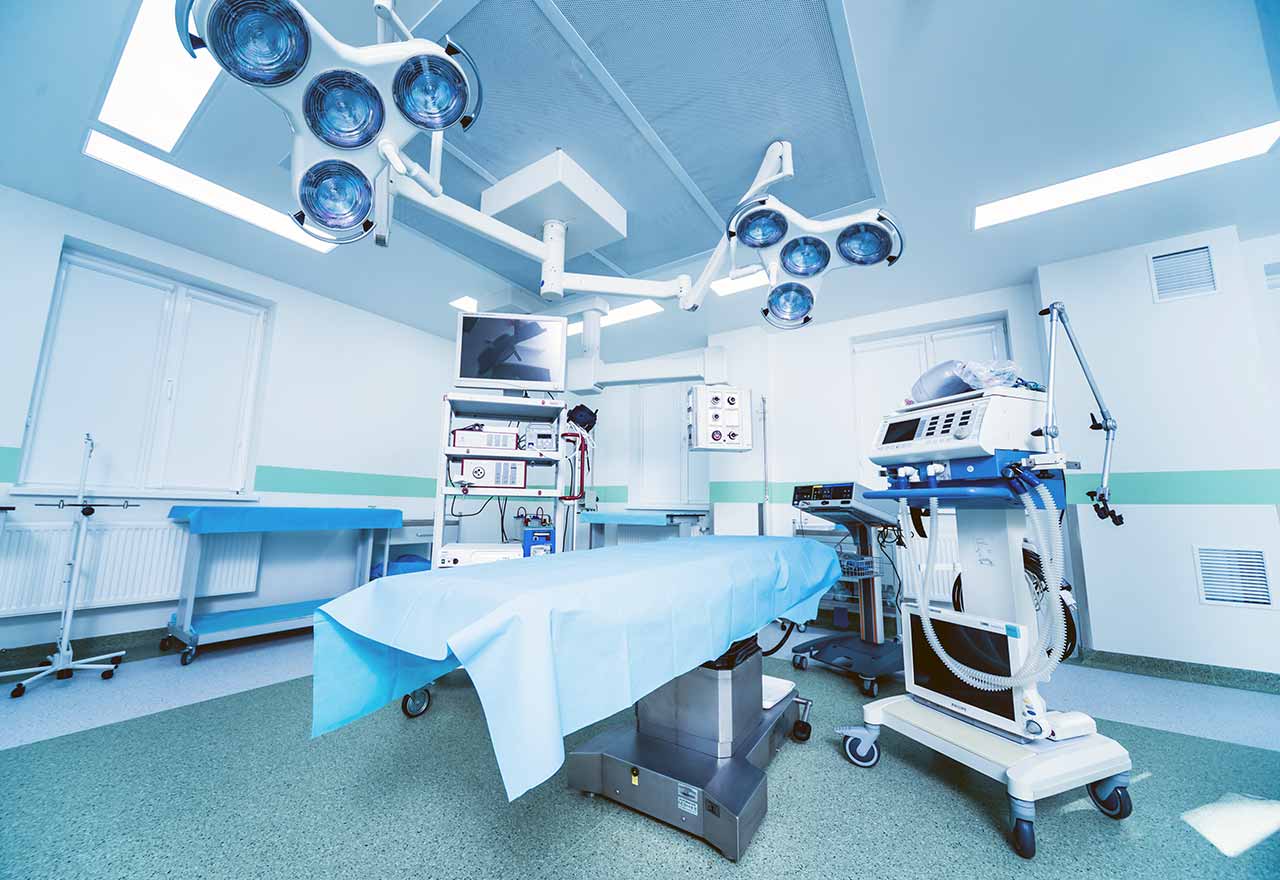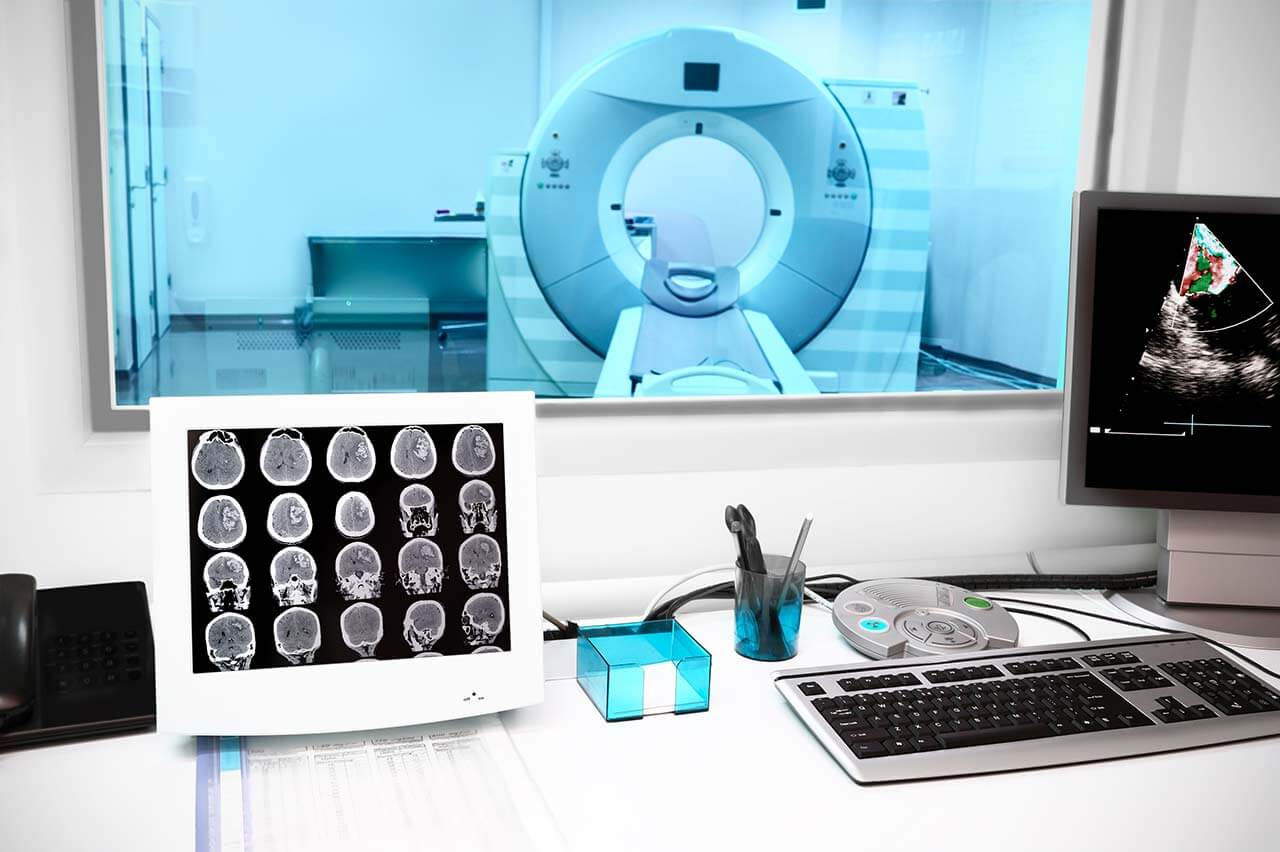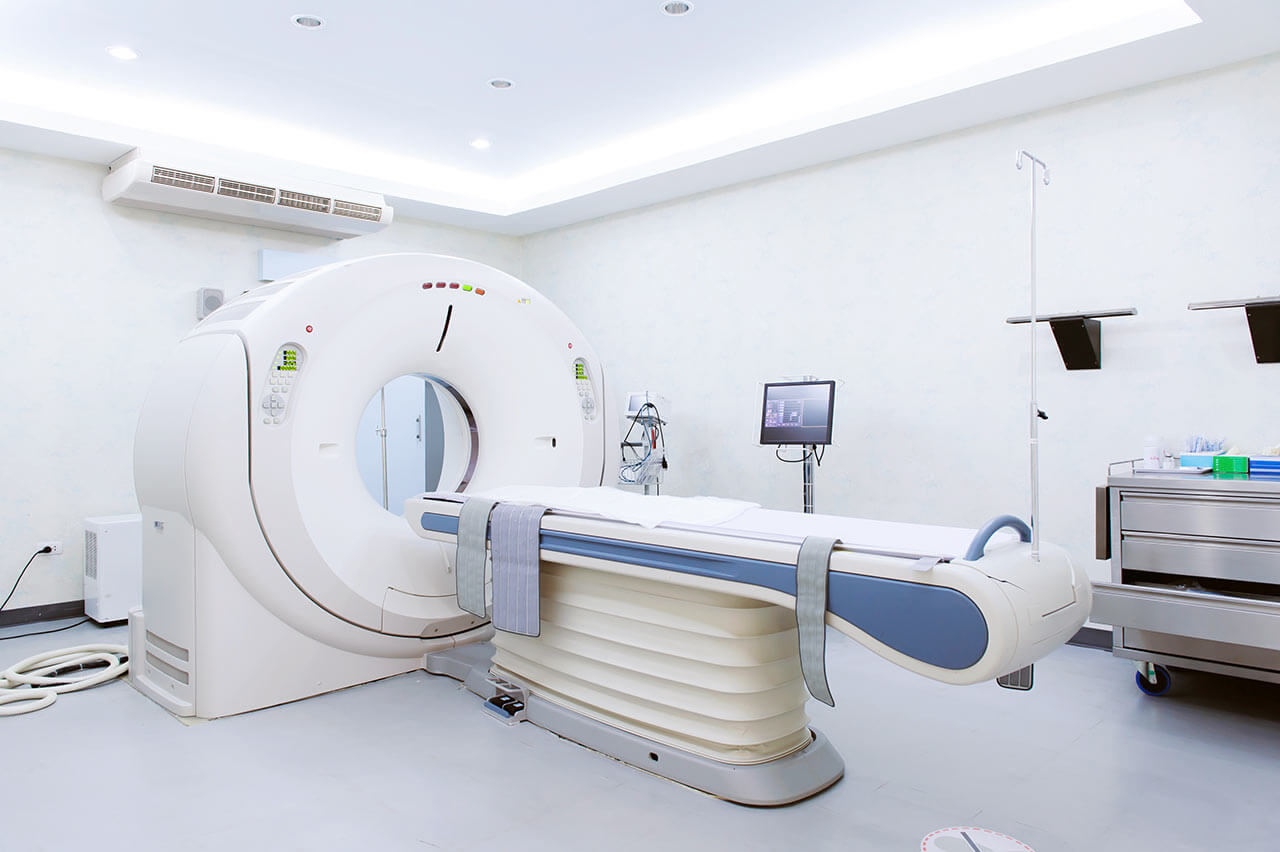
The program includes:
- Initial presentation in the clinic
- clinical history taking
- review of medical records
- physical examination
- laboratory tests:
- complete blood count
- general urine analysis
- biochemical analysis of blood
- inflammation indicators (CRP, ESR)
- indicators blood coagulation
- blood culture
- neurological examination
- CT/MRI scan
- neuropsychological tests (on indications):
- ENMG (electroneuromyography)
- EEG (electroencephalography)
- SEPs (somatosensory evoked potentials)
- VEPs (visually evoked potentials)
- BAEP tests (brainstem auditory evoked potential)
- lumbar puncture with subsequent bacteriological CSF examination,
CSF smear microscopy, inoculation, and other diagnostic techniques - consultation of related specialists
- symptomatic specific treatment
- the cost of essential medicines and materials
- nursing services
- control examinations
- full hospital accommodation
- developing of further guidance
Required documents
- Medical records
- Cerebrospinal fluid analysis, PCR (if avsilable)
Service
You may also book:
 BookingHealth Price from:
BookingHealth Price from:
About the department
According to the prestigious Focus magazine, the Department of Neurology at the University Hospital Hamburg-Eppendorf is one of the best medical facilities in Germany for the treatment of multiple sclerosis and Parkinson's disease!
The entire spectrum of diagnosis and treatment for diseases of the brain, spinal cord, and peripheral nervous system is available here. The department specializes in the treatment of stroke, cerebrovascular diseases, movement disorders, neuromuscular diseases, and inflammatory lesions of the nervous system. The department is proud of its state-of-the-art Stroke Unit, which provides emergency medical care to more than 1,500 patients each year. The department also has advanced diagnostic facilities with the ability to perform ultrasound examinations, electroneuromyography, electromyography, electroencephalography, and evoked potential recording. The department provides medical care to more than 3,700 inpatients and more than 7,000 outpatients every year. Diagnostic and therapeutic measures are carried out in accordance with the recommendations of the German Neurological Society (DGN), which ensures the best results. The department offers modern drug treatment regimens, botulinum toxin therapy, physiotherapy, occupational therapy, and other treatment procedures with proven effectiveness. The department is headed by Prof. Dr. med. Tim Magnus.
The primary specialty of the neurologists in the department is the treatment of Parkinson's disease, a progressive degenerative condition of the brain whose main manifestations are movement disorders, postural disturbances, tremor, muscle rigidity, gait abnormalities, and balance disorders. The pathology develops due to the death of dopamine-producing neurons, which disrupts the transmission of nerve impulses. Patients with Parkinson's disease are admitted to a specialized outpatient clinic and day clinic: the department's specialists offer patients comprehensive treatment programs, including the use of the latest generation of drugs (the most common are levodopa, dopamine agonists, and monoamine oxidase type B inhibitors), physiotherapy procedures, occupational therapy, speech therapy for dysphagia (difficulty swallowing) and speech problems, and diet therapy. In the advanced stages of Parkinson's disease, the department's specialists often recommend pump therapy, in which a special miniature pump is implanted in the patient to provide continuous subcutaneous drug delivery. Pump therapy ensures continuous background delivery of the drug according to the individual regimen prescribed by the treating physician. This is an effective method of treatment that significantly improves the quality of life of patients with advanced stages of Parkinson's disease. The method of deep brain stimulation is used as a last-line treatment. In this procedure, electrodes are implanted in certain areas of the brain to deliver electrical impulses to eliminate pathological muscle movements. Deep brain stimulation effectively controls the symptoms of Parkinson's disease, allowing patients to maintain a high level of independence in their daily lives.
The department also provides medical care for patients with other movement disorders such as tremor (essential tremor and orthostatic tremor), focal dystonia (cervical dystonia and blepharospasm), tics, myoclonus, spasticity, and rare movement disorders (genetic dystonia, ataxia, chorea, and paroxysmal movement disorders). Systemic drug therapy, physiotherapy, botulinum therapy, and deep brain stimulation are used to treat these pathologies.
The medical facility is one of Germany's leading centers for the treatment of multiple sclerosis, a chronic progressive neurodegenerative autoimmune disease that affects the myelin sheath of neurons in the brain and spinal cord. The pathology causes problems with vision, gait and balance disorders, tingling and numbness in the upper and lower extremities, and other serious symptoms. A specialized outpatient clinic and a day clinic have been operating in the department since 1995 to provide medical care to patients with this diagnosis. The department's neurologists work closely with scientists at the Institute for Neuroimmunology and Multiple Sclerosis Research at the University Hospital Hamburg-Eppendorf, which enables them to treat multiple sclerosis with the latest methods that have proven to be effective. The department has impressive experience in the treatment of all forms of multiple sclerosis, including particularly complex ones. Each patient is provided with an individualized treatment regimen to ensure the best possible outcome. Whenever possible, the department's neurologists use only a course of drug treatment: for example, cortisone, mitoxantrone, natalizumab, alemtuzumab, ocrelizumab, and other pharmaceuticals are prescribed. In case of severe exacerbations of multiple sclerosis, the treatment regimen may also include a plasmapheresis procedure, an effective method of blood purification. To eliminate spasticity, the department's neurologists perform botulinum toxin therapy and administer steroids and/or baclofen intrathecally.
The department's specialists also consult patients with myasthenia gravis, a rare autoimmune disease that causes muscle weakness and pathological fatigue. The department is a center certified by the German Myasthenia Gravis Society (DMG) with many years of clinical experience in this field. Patients with myasthenia are indicated for comprehensive therapy, including the use of tablets, infusion of drugs, immunoglobulin therapy, and plasmapheresis. Thymectomy, an operation to remove the thymus gland, performed in the Department of Thoracic Surgery, is used as a last line of treatment.
The main clinical activities of the department include the following:
- Diagnostics and treatment of movement disorders
- Diagnostics and treatment of Parkinson's disease
- Diagnostics and treatment of dystonia
- Diagnostics and treatment of spasticity
- Diagnostics and treatment of tremor
- Diagnostics and treatment of restless legs syndrome
- Diagnostics and treatment of tic disorders
- Diagnostics and treatment of myoclonus
- Diagnostics and treatment of chorea
- Diagnostics and treatment of stereotypies
- Diagnostics and treatment of hemifacial spasm
- Diagnostics and treatment of neuromuscular diseases
- Diagnostics and treatment of myopathies
- Diagnostics and treatment of polyneuropathies
- Diagnostics and treatment of myasthenia gravis
- Diagnostics and treatment of amyotrophic lateral sclerosis
- Diagnostics and treatment of multiple sclerosis
- Diagnostics and treatment of stroke
- Diagnostics and treatment of inflammatory diseases of the nervous system
- Diagnostics and treatment of meningitis
- Diagnostics and treatment of encephalitis
- Diagnostics and treatment of myelitis
- Diagnostics and treatment of traumatic injuries of the nervous system
- Diagnostics and treatment of infectious diseases of the nervous system, including HIV-associated infections and Creutzfeldt-Jakob disease
- Diagnostics and treatment of dementia
- Diagnostics and treatment of vascular dementia
- Diagnostics and treatment of normal pressure hydrocephalus
- Diagnosis and treatment of Alzheimer's disease
- Diagnostics and treatment of genetically determined neurological diseases
- Diagnostics and treatment of pain syndromes, including neuropathic ones
- Diagnostics and treatment of other neurological disorders
The department's therapeutic services include the following:
- Treatment of stroke by thrombolysis and mechanical thrombectomy
- Drug therapy with tablets and injection and infusion administration of pharmaceuticals
- Botulinum toxin therapy
- Physiotherapy
- Occupational therapy
- Deep brain stimulation
- Intensive care
- Interventional procedures (in collaboration with neuroradiologists)
- Balloon dilation with and without stenting
- Coiling
- Interventional pain management (nerve blocks)
- Other treatments for neurological disorders
Curriculum vitae
Prof. Dr. med. Tim Magnus has been the Head Physician of the Department of Neurology at the University Hospital Hamburg-Eppendorf since September 2023. He completed his medical studies at the University of Hamburg. He then completed an internship and a residency at the University Hospital Wuerzburg and the University Hospital Saarland Homburg, as well as an internship at the Johns Hopkins Hospital in Baltimore, USA. In 2007, Prof. Tim Magnus accepted the position of Senior Physician in the Department of Neurology at the University Hospital Hamburg-Eppendorf. Parallel to his work at the University Hospital Hamburg-Eppendorf, he led the reconstruction of the Department of Neurology at the Sana Pinneberg Clinic as Head Physician from 2011 to 2013. The professor served as Acting Head Physician in the Department of Neurology at the University Hospital Hamburg-Eppendorf from 2016 to 2023.
In addition to his successful clinical practice, Dr. Tim Magnus is engaged in a productive research activity focused on the study of stroke and the search for new methods to treat this neurological pathology using nanobodies or extracellular vesicles.
Photo of the doctor: (c) Universitätsklinikum Hamburg-Eppendorf (UKE)
About hospital
According to the Focus magazine, the University Hospital Hamburg-Eppendorf is one of the top ten hospitals in Germany!
Since its foundation in 1889, the hospital has taken a leading position in the European medical arena, which it still holds today. A highly competent medical team of more than 15,300 employees takes care of the health of patients. Approximately 2,900 of them are physicians and researchers, and more than 3,400 work as nurses and therapists. The hospital has 1,738 beds for inpatient treatment, and many diagnostic and therapeutic services are provided on an outpatient basis. A solid foundation for successful clinical practice in the medical complex is formed by a combination of research achievements with state-of-the-art equipment and the highest professionalism of doctors. In addition, the hospital has a modern and extremely comfortable infrastructure. The most important value for every employee of the University Hospital Hamburg-Eppendorf is the health and well-being of every patient.
The medical facility was the first university hospital in Europe to implement an electronic system for storing patient medical reports. As a result, all diagnostic and treatment protocols are stored electronically. In 2011, the hospital was certified as the first fully digital hospital in Europe.
The hospital represents all areas of modern medicine. The doctors of the healthcare facility have a wealth of theoretical knowledge and vast clinical experience, which allows them to easily cope with the treatment of both common and extremely rare, complex clinical cases. About 550,000 patients are treated here each year, over 450,000 of whom receive outpatient medical care.
An important part of the work of the University Hospital Hamburg-Eppendorf is research activities aimed at developing innovative diagnostic and treatment methods. The main areas of research of the hospital include neurobiology, oncology, cardiovascular research, and research on infectious and inflammatory diseases. Special attention is also given to research in molecular imaging and skeletal biology.
The hospital is distinguished by its first-class level of medical care, which is confirmed by numerous quality certificates of European and international standards: DIN EN IS0 9001 certificate, certificates of the German Cancer Society (DKG) in the treatment of breast cancer, colon cancer, gynecological cancer, prostate cancer, and other oncological diseases, certificate of the German Cardiac Society (DGK) in the treatment of acute coronary syndrome, certificate of the German Spine Society (DWG), and others.
Photo: (с) depositphotos
Accommodation in hospital
Patients rooms
The patients of the University Hospital Hamburg-Eppendorf stay in comfortable single and double bright rooms with a modern design. Each patient room has an ensuite bathroom with a shower and a toilet. The standard patient room furnishings include an automatically adjustable bed with an orthopedic mattress, a bedside table, a wardrobe, a table and chairs for receiving visitors, a telephone, a radio, and a TV. Wi-Fi access is available in patient rooms and throughout the hospital.
If desired, patients can stay in single enhanced-comfort rooms. These rooms are more spacious and are equipped with upholstered furniture, a safe, and a mini-fridge.
Meals and Menus
The hospital offers three meals a day: breakfast, lunch, and dinner. Breakfast and dinner are served in the form of buffets, and for lunch you can choose from several set menus – in total, more than 20 dishes are served for lunch, including vegetarian ones.
If, for some reason, you cannot eat all of the foods, you will be offered an individual menu. Please inform the medical staff about your dietary preferences prior to the treatment.
Further details
Standard rooms include:
![]() Toilet
Toilet
![]() Shower
Shower
![]() Wi-Fi
Wi-Fi
![]() TV
TV
Religion
Religious services are available upon request.
Accompanying person
During the inpatient program, an accompanying person may stay with you in a patient room or hotel of your choice.
Hospital accommodation
During the outpatient program, you may stay in a hotel at the hospital.
Hotel
During the outpatient program, you may stay in a hotel of your choice. Managers will help you choose the most suitable options.
The hospital offers a full range of laboratory tests (general, hormonal, tests for infections, antibodies, tumor markers, etc.), genetic tests, various modifications of ultrasound scans, CT scans, MRI and PET / CT, angiography, myelography, biopsy and other examinations. Treatment with medications, endoscopic and robotic operations, stereotaxic interventions is carried out here, modern types of radiation therapy are also used. The hospital offers patients all the necessary therapeutic techniques.
- Coiling and clipping of aneurysms of different localizations
- Transjugular intrahepatic portosystemic shunting in patients with portal hypertension
- Minimally invasive surgeries (da Vinci)
- Removal and reconstruction of mammary glands
- Hyperthermic intraperitoneal chemotherapy (HIPEC)
These are arteriovenous malformations and angiomas, vascular aneurysms, pathologies of the mammary glands, pelvic organ prolapse, urinary incontinence, malignant tumors of various localizations (area of special attention is treatment of intestinal cancer), pathologies of liver and pancreas, cataracts and rare ophthalmic pathologies (aphakia, aniridia ), infertility and other diseases.
- Interventional neuroradiology
- Mammology
- Oncology
- Gastroenterology
- Surgery
Over 2,900 highly qualified physicians and researchers work at the hospital.





